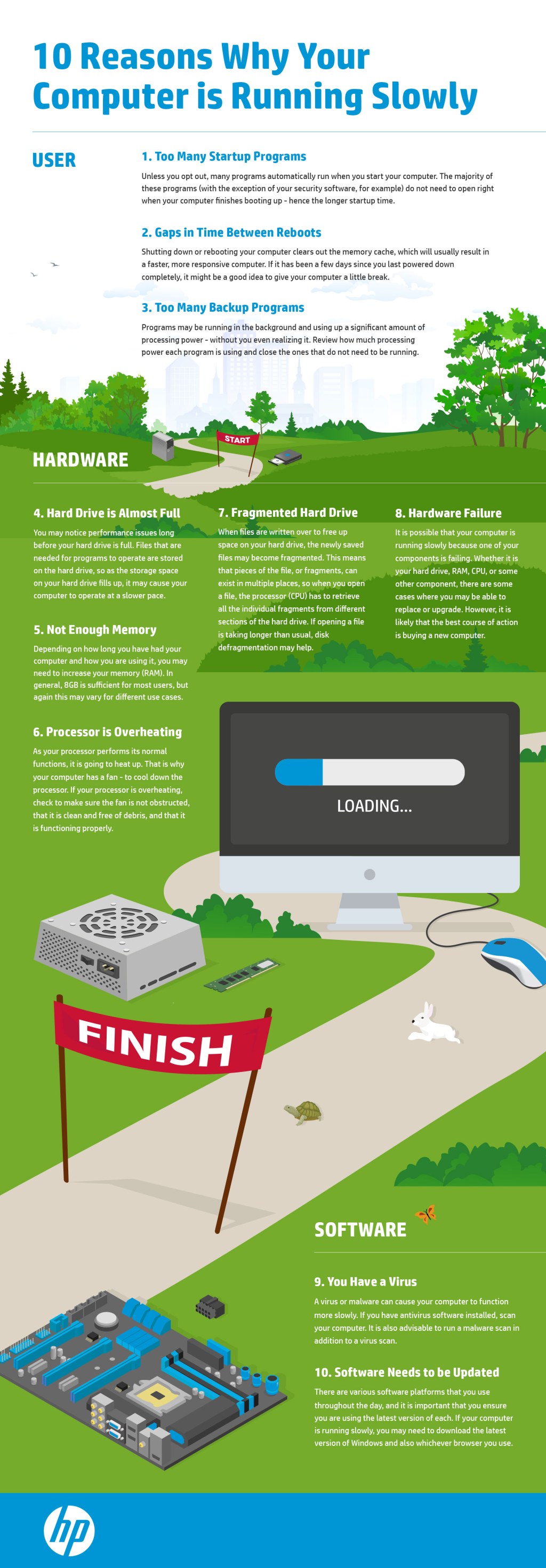Desktop PC Running Slow: Causes, Solutions, and Tips
Introduction
Dear Readers,
Welcome to our comprehensive guide on desktop PCs running slow. In today’s fast-paced digital world, a slow computer can be frustrating and hinder your productivity. Whether you use your desktop for work, gaming, or entertainment, a sluggish performance can impact your overall experience. In this article, we will explore the various causes of a slow desktop PC, provide effective solutions, and offer tips to optimize its performance. So, if you’re tired of waiting for applications to load and want to revitalize your desktop’s speed, read on.
What Causes a Desktop PC to Run Slow?

Image Source: store.hp.com
🔍 One of the main reasons for a slow desktop PC is insufficient memory or RAM. When your computer runs out of RAM, it relies on the hard disk drive (HDD) or solid-state drive (SSD) for virtual memory, which slows down the overall performance.
🔍 Another common cause is a cluttered hard drive. Over time, unnecessary files, temporary files, and outdated software accumulate, occupying valuable disk space and slowing down your computer.
🔍 Malware and viruses can also significantly impact your desktop’s speed. These malicious programs consume resources and may cause your computer to slow down or freeze.
🔍 Outdated hardware or software can be a bottleneck for your desktop’s performance. If your components are not up to date or your operating system lacks the latest updates, it can negatively affect your PC’s speed.
🔍 Overheating is yet another culprit for a slow desktop. When the CPU or other components reach high temperatures, they throttle the performance to avoid damage.
🔍 Background programs and startup applications that run automatically can consume valuable system resources, leading to a slow desktop experience.
🔍 Lastly, a fragmented hard drive can cause delays in retrieving data, resulting in a sluggish performance.
Who is Affected by a Slow Desktop PC?
👥 Anyone who uses a desktop PC can be affected by a slow computer. Whether you’re a student, professional, gamer, or casual user, a slow desktop can hinder your efficiency, productivity, and overall satisfaction with your device.
When Does a Desktop PC Tend to Run Slow?
⌚ A desktop PC can start running slow at any time. However, it often occurs after extended periods of use without regular maintenance. Additionally, outdated hardware or software, as well as changes in system requirements for newer applications, can contribute to a gradual decrease in performance.
Where Does a Desktop PC Typically Run Slow?
📍 A desktop PC can run slow in various settings. Whether you’re at home, in the office, or even using a public computer, a sluggish desktop can hinder your tasks and diminish your user experience.
Why Does a Desktop PC Run Slow?
🔍 There can be multiple reasons why a desktop PC runs slow. The causes mentioned earlier, such as insufficient memory, cluttered hard drive, malware, outdated hardware or software, overheating, background programs, and a fragmented hard drive, can all contribute to a slow desktop experience.
How to Speed Up a Desktop PC?
🚀 To speed up your desktop PC, you can follow these tips:
1️⃣ Upgrade your RAM to ensure sufficient memory for smooth performance.
2️⃣ Regularly clean up your hard drive by removing unnecessary files and uninstalling outdated software.
3️⃣ Use reliable antivirus software to scan and remove malware or viruses.
4️⃣ Keep your hardware and software up to date by installing the latest updates and drivers.
5️⃣ Ensure proper ventilation and cooling for your desktop to prevent overheating.
6️⃣ Disable unnecessary startup applications and limit background processes.
7️⃣ Defragment your hard drive to optimize data retrieval and improve performance.
Advantages and Disadvantages of a Slow Desktop PC
Advantages:
✅ Allows you to identify underlying issues and address them promptly.
✅ Provides an opportunity to clean up and declutter your computer.
✅ Encourages you to optimize your desktop’s performance and learn valuable troubleshooting skills.
Disadvantages:
❌ Slows down productivity and hinders multitasking.
❌ It may require investment in hardware upgrades or professional assistance.
❌ Can lead to frustration and dissatisfaction with your desktop experience.
Frequently Asked Questions (FAQs)
Q1: Why is my desktop PC suddenly running slow?
A1: There could be various reasons for a sudden slowdown, including malware infections, hardware issues, or outdated software.
Q2: Is it worth upgrading the RAM on my desktop PC?
A2: Yes, upgrading your RAM can significantly improve your desktop’s speed and overall performance.
Q3: How often should I clean up my desktop’s hard drive?
A3: It’s recommended to clean up your hard drive regularly, at least once every few months, to remove unnecessary files and optimize storage.
Q4: Can a slow desktop PC be a sign of a virus?
A4: Yes, malware infections can cause your desktop to slow down. Running a thorough antivirus scan is recommended.
Q5: Should I defragment my hard drive?
A5: Defragmenting your hard drive can help improve performance by organizing data more efficiently. However, modern operating systems often handle this automatically, so manual defragmentation may not always be necessary.
Conclusion
In conclusion, a slow desktop PC can be a frustrating experience, but it’s not an unsolvable problem. By understanding the causes and following the solutions and tips provided in this article, you can optimize your desktop’s performance and enjoy a smooth and efficient computing experience. Don’t let a sluggish computer hinder your productivity; take action today and give your desktop the boost it deserves.
Best regards,
Your Tech Solutions Team
Final Remarks
Please note that the information provided in this article is intended for general informational purposes only. While we have made every effort to ensure its accuracy, we make no representations or warranties of any kind, express or implied, about the completeness, reliability, or suitability of the information contained herein. Any reliance you place on such information is strictly at your own risk. We recommend consulting a professional technician for personalized advice and assistance tailored to your specific needs.